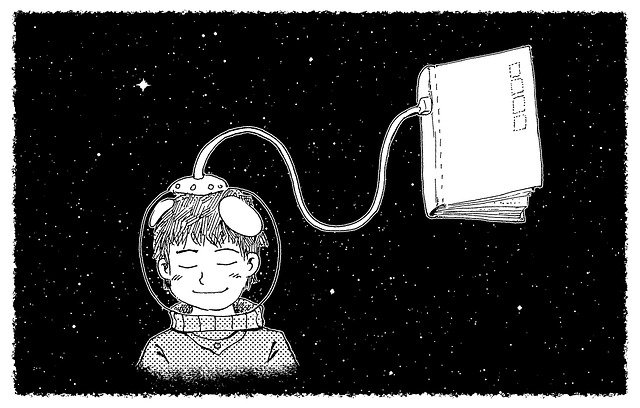Table of Contents
Lucid Dreams

When you are aware that you are dreaming while sleeping, you have lucid dreams. You’re well aware that the events racing across your head aren’t real. The dream, on the other hand, is vivid and real. You could even be able to command the scene in your sleep, just like a movie director.
Approximately half of all adults, according to research, have had at least one lucid dream. They are, however, uncommon, occurring only a few times every year on average. A lucid dream occurs when the dreamer is conscious of the fact that he or she is dreaming. During a lucid dream, the dreamer may have some control over the dream characters, narrative, or surroundings, although this is not essential for the dream to be defined as lucid. Lucid dreaming has been studied and reported for many years. From antiquity to the present, famous people have been drawn to lucid dreams and have sought to learn more about their causes and purposes. A multitude of theories has emerged as a result of scientific studies on the subject, some of which have even been represented in popular culture.
Rapid eye movement sleep, which is marked by rapid eye movement, faster breathing, and greater brain activity, is the most prevalent time for lucid dreams. You usually begin rapid eye movement sleep 90 minutes after falling asleep. It lasts for around ten minutes. Each rapid eye movement sleep cycle gets longer and longer, eventually reaching an hour.
Neuroscientists are baffled as to how and why lucid dreams occur. They do, however, have some suggestions. Researchers have discovered physical differences between those who have lucid dreams and those who don’t. The prefrontal cortex, which is responsible for higher-level activities such as decision-making and memory recall, is larger in people who have lucid dreams. That means people who are self-aware and think about their own thoughts are more likely to have lucid dreams. Individuals’ brain electrical activity was measured while they slept in a small study done in Germany. According to the findings, lucid dreaming is a type of “in-between state” in which you are neither fully awake nor fully asleep. Some sleep experts believe that people can have lucid dreams outside of REM sleep, which was traditionally thought to be the only time they dreamed.
Benefits of Lucid Dream

Less anxiety: The feeling of control you get during a lucid dream can last a long time and make you feel powerful. After you realize you’re in a dream, you can shape the story and the ending. This could be used to teach people who suffer from nightmares how to govern their dreams as a type of treatment.
Improved motor skills: There’s some evidence that “practicing” during a lucid dream can help you improve simple abilities like tapping your fingers faster. The same portion of your brain is activated whether you visualize the acts while waking or run through them in a lucid dream.
Improved problem-solving: Researchers discovered some evidence that lucid dreams can assist people in overcoming difficulties involving creativity such as a disagreement with another person rather than logic such as a math problem.
They Can Help You Be More Creative: Lucid dreams can also help you be more creative in your waking life; “there are many famous examples in history of people who have discovered while dreaming.” Perhaps your dreams will lead you to the role of inventor one day.
More creativity: In lucid dream studies, participants were able to generate new ideas or insights, often with the help of dream characters.
They Can Assist with Anxiety Symptoms: Lucid dreaming can assist with nightmare anxiety. Because of a sensation of loss of control, a lot of anxiety manifests itself in dreams, explains. “In some respects, having a lucid dream is a strategy to confront and control your worries.” The link between anxiety reduction and lucid dreaming is currently unknown, despite preliminary study finding some support.
They assist you in getting a better night’s sleep: One of the most well-known benefits of lucid dreaming is its ability to improve sleep quality. According to the study, “if chronic nightmare sufferers can obtain control over that lucid dream, they may be able to change the outcome of the nightmare or the dream itself.” “In this sense, they’re turning a dreadful nightmare into something less bad or an outcome they’d be better with.”
They Can Aid in the Development of Motor Abilities: A tiny study looked into how lucid dreams can aid in the development of motor skills. “For example, if you’re dreaming about playing basketball, you’re not actually playing basketball, but your brain is triggered in the same way as if you were.” In essence, the research implies that if you can practice such abilities during lucid dreaming, you might be able to enhance motor results in the real world.
They can strengthen their problem-solving skills: According to Anastasios, lucid dreaming is a fantastic mental practice that allows you to visualize and then execute your strategy. Acting things out in a lucid dream, he continues, is analogous to practicing how you would react and adjust to situations in real life. “Some believe that lucid dreams have assisted them in solving challenging real-life problems in creative ways.” Studies show that practicing problem-solving skills in lucid dreamland helps you deal with challenges in waking life, which is all the more reason to get adequate sleep when you’re in a bind.
Though there aren’t many studies in this area: Limbekar adds anecdotal evidence and exploratory studies look into the possible benefits of lucid dreams in the treatment of phobias. She told Bustle that it might be useful for people who have specific phobias, such as snakes. “They have the power to transform how people feel towards snakes.
How to Have Lucid Dreams?

You might be able to boost your chances of having lucid dreams, according to some preliminary studies. One way is to teach your mind to look for unusual details in your dreams as a warning sign that it isn’t real. More research is needed to see if any approach may truly generate a lucid dream. Some of the things that researchers have done are as follows:
Pausing at various times throughout the day to evaluate whether or not you are dreaming is known as reality testing. You can do impossible things like inserting your finger through your hand or inhaling through closed lips. In a dream, you can also do something tough, such as reading a page from a book.
Keep a dream notebook. According to multiple studies, people who kept a dream journal had more lucid dreams because they were more focused on them. Other research has found that while these journals are ineffective on their own, they can be useful when combined with other tactics.
Wake back to bed. In an attempt to enter rapid eye movement sleep, you wake up after 5 hours of sleep, remain up for a brief time, and then return to bed. Using mnemonics to induce lucid dreams After a 5-hour nap, you wake up and tell yourself that the next time you dream, you will remember it. A prospective memory, or the act of remembering to do something in the future, sets off a lucid dream. Drugs, the effects of other drugs, such as vitamins and medicinal plants, on sleep and dreams have also been examined. However, it is unknown if they are safe or effective. Devices, some lucidity-inducing masks, and headbands include lights or noises. Other gadgets can record and play messages used in the MILD technique while you’re sleeping.
Optimize your sleeping environment: Maintaining a healthy sleep-wake cycle requires good sleep hygiene, which includes receiving enough REM sleep, which is when lucid dreams are most likely to occur. Make sure your bedroom is at a comfortable temperature; the ideal sleeping temperature is 65 degrees Fahrenheit (18.3 degrees Celsius). Keeping the room dark and quiet is also a good idea. Blocking off distracting outside noises with earplugs and sound machines is one option while reducing light levels using blackout curtains, sleeping masks, and other accouterments is another.
Assess your reality: Do some “reality testing” during the day by keeping an eye on your surroundings to discover if you’re awake or sleeping. When contrasted to reality, the location in a dream may appear to be familiar, but there will be inconsistencies and distortions. If you do these reality checks several times a day, you may develop the ability to test your reality during dreams.
The power of suggestion: Some people can induce lucid dreams just by telling themselves they will experience one when they fall asleep.
Try the MILD and WBTB techniques: For the mnemonic induction of lucid dreams technique, wake up after five hours of sleep (set an alarm if necessary) and tell yourself that once you’ve fallen asleep, you’ll remember you’re dreaming. The MILD approach has been shown to be quite effective in various studies. The wake back to bed procedure also necessitates waking up after five hours of sleep. You should stay awake for 30 to 120 minutes after using WBTB before going back to sleep.
Keep a dream journal: Every morning, write down all you remember about your dreams. A voice recorder can also be used to keep track of your dreams. Detailed records will help you recognize dreams after you’ve fallen asleep, potentially allowing you to have lucid dreams.
Experiment with video games: There is a link between video gameplay and the frequency and control of lucid dreams, according to some research. In the case of interactive video games, this is especially true.
Pick up a lucid dreaming device: There are a variety of portable lucid dreaming technologies available today. These gadgets, which are common in the form of sleep masks or headbands, create noises, flashing lights, vibrations, and other signals, and operate as aural, visual, and/or tactile stimuli. At least $200 will be spent on one of these devices.
Demerits of Lucid Dreaming

1) You can have a false memory of anything whether or not you did it: Lucid dreams are so realistic that you may not be able to distinguish between your dream experience and a real-life situation.
2) Sleep disruption: Having a vivid and engaging lucid dream may cause you to wake up from it and lose sleep.
3) It’s not real: Whatever interactions you have with people or objects in your lucid dream can be twisted and warped from true reality, causing you to misunderstand your dream and see things that are different and skewed from the truth.
4) You may find yourself preferring the dream world to reality: A pleasant dream experience can become addicting, and you may find yourself wishing to spend as much time as possible in a lucid dream because it feels better than reality.
5) Nightmares and sleep paralysis: You will be awake when you wake up from a lucid dream, but your body will still be in sleep mode, preventing you from moving your body parts. You may have bad experiences and nightmares because your inner world, like the real world, is not all rainbows and sunshine.
6) Mental exhaustion during the day: Having a lucid dream involves a significant amount of mental effort, and if you practice it frequently enough, you will become mentally fatigued during the day.
7) Sleep deprivation: Vivid dreams might wake you up and make it difficult to fall back asleep. You can have difficulties sleeping if you’re too focused on lucid dreaming.
8) Confusion, delirium, and hallucinations: In people with specific mental health disorders, lucid dreams can produce confusion, delirium, and hallucinations.
Affirmations

1. Lucid dreaming is one of my favorite things to do.
2. My dreams are always vivid and clear.
3. To me, lucid dreaming is second nature.
4. When I’m dreaming, I’m really aware of it.
5. Lucid dreaming is a common occurrence in my life.
6. It’s simple for me to recall my dreams.
7. I have complete power over my fantasies.
8. I can wake up whenever I choose in my dreams.
9. My attention is drawn to lucid dreaming.
10. Even when I’m sleeping, my mind is active.
11. Tonight, I’m going to have a lucid dream.
12. I’ll wake up in the middle of my dream.
13. I’m getting better at recognizing when I’m dreaming, and I’m starting to remember my dreams every day. I’m becoming a lucid dreamer.
14. It’s getting easier for me to control my dreams.
15. My awareness of my dreams is rising.
16. My dreams will be under my control.
17. I’m developing into someone who has lucid dreams every night, and I’ll be able to tell when I’m dreaming.
18. I have the ability to dream clearly.
19. When I’m dreaming, I’m totally aware of it.
20. I always wake up in the middle of a dream.
21. My dreams are completely within my control.
22. My ideal memory is flawless.
23. My dream awareness is quite powerful.
24. When I’m dreaming, I’m always awake.
25. Inside my dreams, I am awake.
26. My dreams are vivid in my mind.
27. I am constantly aware that I am dreaming.
28. I have the ability to dream clearly.
29. When I’m dreaming, I’m totally aware of it.
30. I always wake up in the middle of a dream.
31. My dreams are completely within my control.
32. My ideal memory is flawless.
33. My dream awareness is quite powerful.
34. When I’m dreaming, I’m always awake.
35. Inside my dreams, I am awake.
36. My dreams are vivid in my mind.
37. I am constantly aware that I am dreaming.
38. I’m going to have a lucid dream tonight.
39. I’ll wake up in the middle of my dream.
40. It’s become second nature for me to recognize when I’m dreaming.
41. Every day, I’m starting to recall my dreams.
42. I’m starting to get lucid dreams.
43. Controlling my dreams is becoming second nature to me.
44. My awareness of my dreams is rising.
45. My dreams will be under my control.
46. Every night, I’m developing into someone who has lucid dreams.
47. I’ll be able to tell when I’m dreaming.
48. Lucid dreaming is one of my favorite things to do.
49. My dreams are always vivid and clear.
50. To me, lucid dreaming is second nature.
51. When I’m dreaming, I’m really aware of it.
52. Lucid dreaming is a common occurrence in my life.
53. It’s simple for me to recall my dreams.
54. I have complete power over my fantasies.
55. I can wake up whenever I choose in my dreams.
56. My attention is drawn to lucid dreaming.
57. Even when I’m sleeping, my mind is active.
58. Right now, a river of superabundance is flowing toward me in the form of dream success and enormous prosperity.
59. With my dream concepts, I’m now attracting success.
60. For me, achieving my goals is a natural result.
61. I am totally capable of realizing my lofty ambition.
62. Despite appearances, my huge goal is currently coming to a reality.
63. Right now, my ambition is becoming a reality.
64. Right now, my major dream is to manifest itself in my life.
65. With each step I take toward realizing my ambition, new chances present themselves.
66. On this dream trip, there is always something to be thankful for.
67. Everything that happens to me in my dream trip makes me open and attentive.
68. Today, I have the ability to realize my ambitions.
69. For my creations, I am well compensated.
70. I am grateful for the satisfying realization of my dream.
71. My life exudes radiant beauty, radiant prosperity, and radiant goodness.
72. I’m not willing to give up on my dream.
73. It is my divine mission to fulfill.
74. In my life, dream miracle after dream miracle is now manifesting.
75. On this fantastic adventure, there’s always something to be thankful for.
76. Everything that occurs to me during my dream journey makes me open and responsive.
77. Today, I have the ability to realize my goals.
78. For my work, I am well compensated.
79. I’m grateful for my dream coming true.
80. My life radiates radiant beauty, radiant prosperity, and radiant goodness.
81. I’m not willing to give up on my ambition.
82. To achieve this is my divine destiny.
83. My life is now filled with dream miracles after dream miracles.
84. I now get dream advice from both expected and surprising places.
85. I have all of the time I need to realize my ambition.
86. My desired goals are simple for me to achieve.
87. Every day, my ideal existence gets better and better in every aspect.
88. I accept that fear indicates that I am on the correct course to living an extraordinary life.
89. Today, I face my fears and take a chance to realize my dream.
90. Today, I take advantage of every major dream chance that comes my way.
91. Setbacks are merely stumbling blocks on the way to realizing my biggest ambition.
92. Every constructive effort I make today to reach my goal will be rewarded in equal measure.
93. Every day, I get a kick out of realizing my dreams.
94. I’m confident in my ability to pursue my huge dream.
95. I am dedicated to realizing my ambition.
96. Nothing will be able to stop me from realizing my ambition.
97. I’m living the life I’ve always wanted.
98. Money is currently flowing into my current dream.
99. I have all the energy I require to realize my ambition.
100. My ideal is surrounded by love and support.
101. My how always appears when my why is powerful enough.
102. I go with my gut instinct. My happiness comes to me. I transform into my pleasure.
103. Today, I am completely dedicated to being the person I was born to be!
104. I am the driving force behind my fantasies. My dreams never abandon me, and I never abandon them.
105. I am the one who conquers the mountain, not the mountain itself. I’m nearing the summit of the mountain, and my day in the sun has arrived!
106. In the light of my determination, my uncertainties fade into shadows.
107. Roadblocks are only detours on the way to something better than I had anticipated!
108. I desire to achieve greatness. I’m completing each one one by one!
109. Today, I have a definite objective in mind, and I’m laser-focused on achieving it!
110. My target is my goal, and I am on track today!
111. Today, I’m blocking off distractions and staying focused on my goals!
112. When I set out to do something, I block out all the negative thoughts and detractors and concentrate solely on my goal!
113. I’m at the top of my game right now. All the road to my dreams, I have unstoppable momentum!
114. My life is a monument to the strength of willpower. Success is always waiting for me when I go the additional mile.
115. Today, I pay close attention to the objectives and dreams that are now speaking to me.
116. Today, I focus on what is most important to me, and I work hard to achieve it!
117. Today, I live with a sense of purpose, and that sense of purpose illuminates my path to my objectives and ambitions!
118. I am dedicated to achieving my goals. Right now, I’m on my way to meeting them!
119. My purpose is evident today, and my life route is laid out in front of me.






